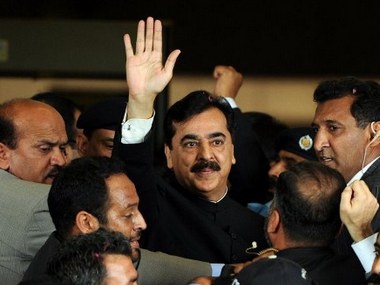For a long while now, Pakistan has always been, in advertising parlance, Brand X - the unnamed competing, inferior product that was typically used in television commercials in an earlier time to promote the virtues of one’s own product, which comes out shining in comparison. However badly we may be doing on the governance front - and god knows we’ve slipped up spectacularly on that count - we could always console ourselves with the realisation that bad as we are, Pakistan was worse off. At least we don’t have Taliban leaders imposing a ban on the polio immunisation campaigns, right? And the fact that we don’t have frequent military coups to topple our elected civilian administration, in the way that used to happen frequently in Pakistan, is seen as a source of pride in our democracy, flawed though it may be. However, popular perceptions in India have changed somewhat on that count. In step with the decline in our democratic institutions, there has in recent times been a creeping admiration in sections of civil society of a kind of authoritarianism that will fix the perceived “flaws” of democracy. And so, when the Indian Express put out an alarmist report in April, suggesting (without saying explicitly) that irregular troop movements in January in Delhi had prompted fears of a coup by the Army under the command of the then Army chief, Gen VK Singh, who was then challenging the government on his age issue, there were actually people wishing that the report had been true. And suggesting that what we need is an iron hand to sort out the colossal mess that our politicians had inflicted on India. [caption id=“attachment_350718” align=“alignleft” width=“380” caption=“AFP”]  [/caption] The Indian Express report was, of course, a tendentious perversion of the truth: the troop movements were routine, and there was no risk ever that Gen VK Singh, for all his differences with the government, would have even contemplated such a monstrous course of action. Yet, as Firstpost had noted ( here ), for much of that day, a misplaced yearning for a coup resonated among sections of ordinary folks who were evidently jaded with the political system. On at least that one day, they perhaps had a sneaking admiration of Pakistan’s way of periodically flushing out elected governments by men in khaki. After yesterday’s ‘ judicial coup’ in Pakistan, where the Supreme Court effectively disqualified the Prime Minister for contempt of court, there will presumably be those in India who yearn for a similar change at the top, but feel stuck with the gridlocked political status quo. In any case, India too has seen an extraordinary exertion of judicial activism in recent months, right down to the point where the court was dictating fine details of policy and where, as Firstpost has observed ( here and here ), it wasn’t always clear whether it was an elected government or the Supreme Court that was running India. The political commentary in Pakistan has been by and large critical of the ‘judicial coup’, seeing it as an assertion of extra-constitutional authority by the Supreme Court. Just the fact that the violation of Constitutional provisions has caused heartburn in Pakistan, despite the all-too-frequent violations of the past, points to a maturing of the democractic process there. Strikingly, in its brief ruling ( full text here), Pakistan’s Supreme Court actually cited two judgments by the Indian Supreme Court on matters that go to the heart of the functions of key institutions in an elected democracy. The two judgments are: Jagjit Singh vs State of Haryana (AIR 2007 SC 90, full text of order available here) and Rajendra Singh Rana vs Swami Prasad Maurya (AIR 2007 SC 1305; full text of order available here). As media commentaries in India have pointed out, the two judgments establish two crucial points. The first relates to the authority of the Constitutional Court to exercise the power of judicial review if the decision of the Speaker is unconstitutional or against the Rules of Business of the House. Second, they establish that the power to disqualify an MP or an MLA lies with the Election Commission and not the Speaker, evidently to avoid politically motivated decisions. Pakistan’s Supreme Court certainly breached the fine line it drew by itself technically disqualifying the Prime Minister in its ruling yesterday. But just the mere fact that it invoked judicial precedents from India suggests that it may be looking to move beyond being the Brand X of political systems. It’s entirely a pity that at the same time, at least some among us Indians are going in the opposite direction - by yearning for an authoritarian hand that wipes clean our political mess. Our elected democracy may not be perfect - far from it - but it’s worth remembering that it can always be perfected. And at all times, we have to be careful what we wish for.
Beyond the dynamics of the ‘judicial coup’ in Pakistan, there are signs of a maturing of political systems in that country. In India, however, there has been a disquieting regression on that count.
Advertisement
End of Article
Written by Vembu
Venky Vembu attained his first Fifteen Minutes of Fame in 1984, on the threshold of his career, when paparazzi pictures of him with Maneka Gandhi were splashed in the world media under the mischievous tag ‘International Affairs’. But that’s a story he’s saving up for his memoirs… Over 25 years, Venky worked in The Indian Express, Frontline newsmagazine, Outlook Money and DNA, before joining FirstPost ahead of its launch. Additionally, he has been published, at various times, in, among other publications, The Times of India, Hindustan Times, Outlook, and Outlook Traveller. see more


)
)
)
)
)
)
)
)
)



